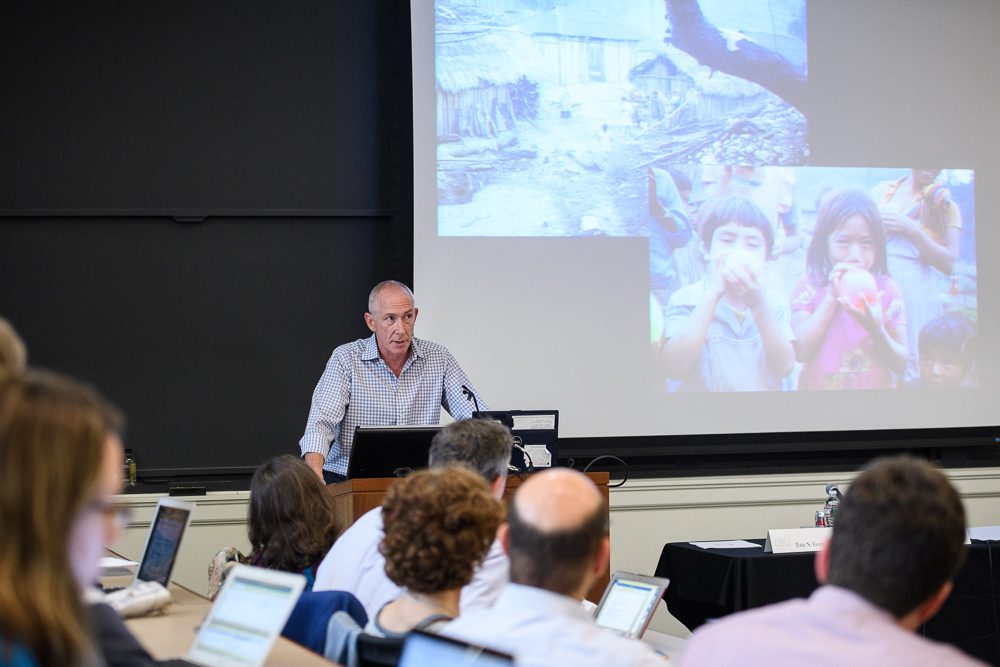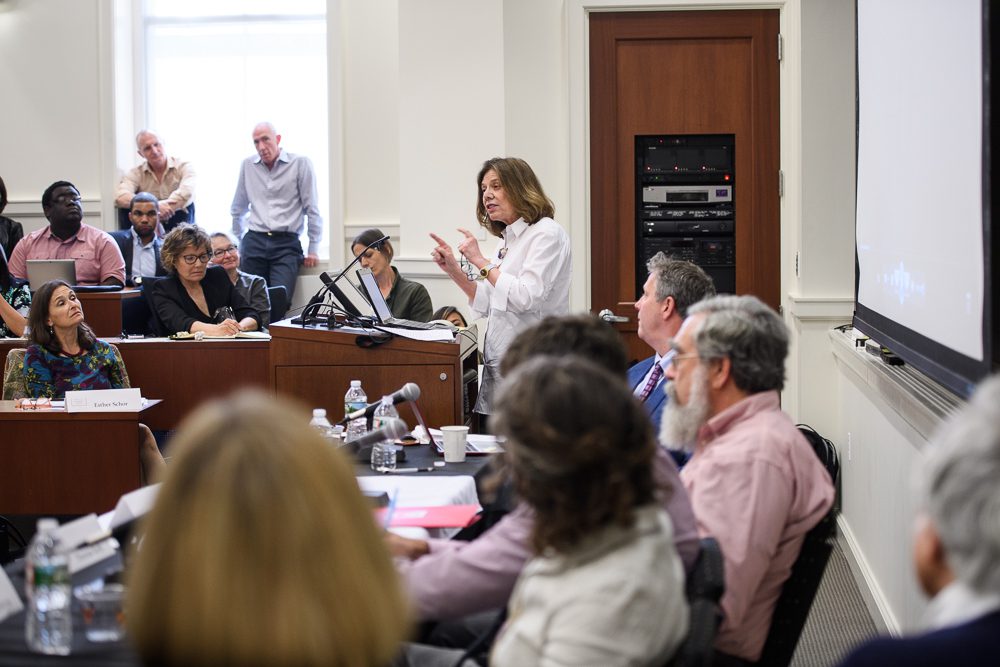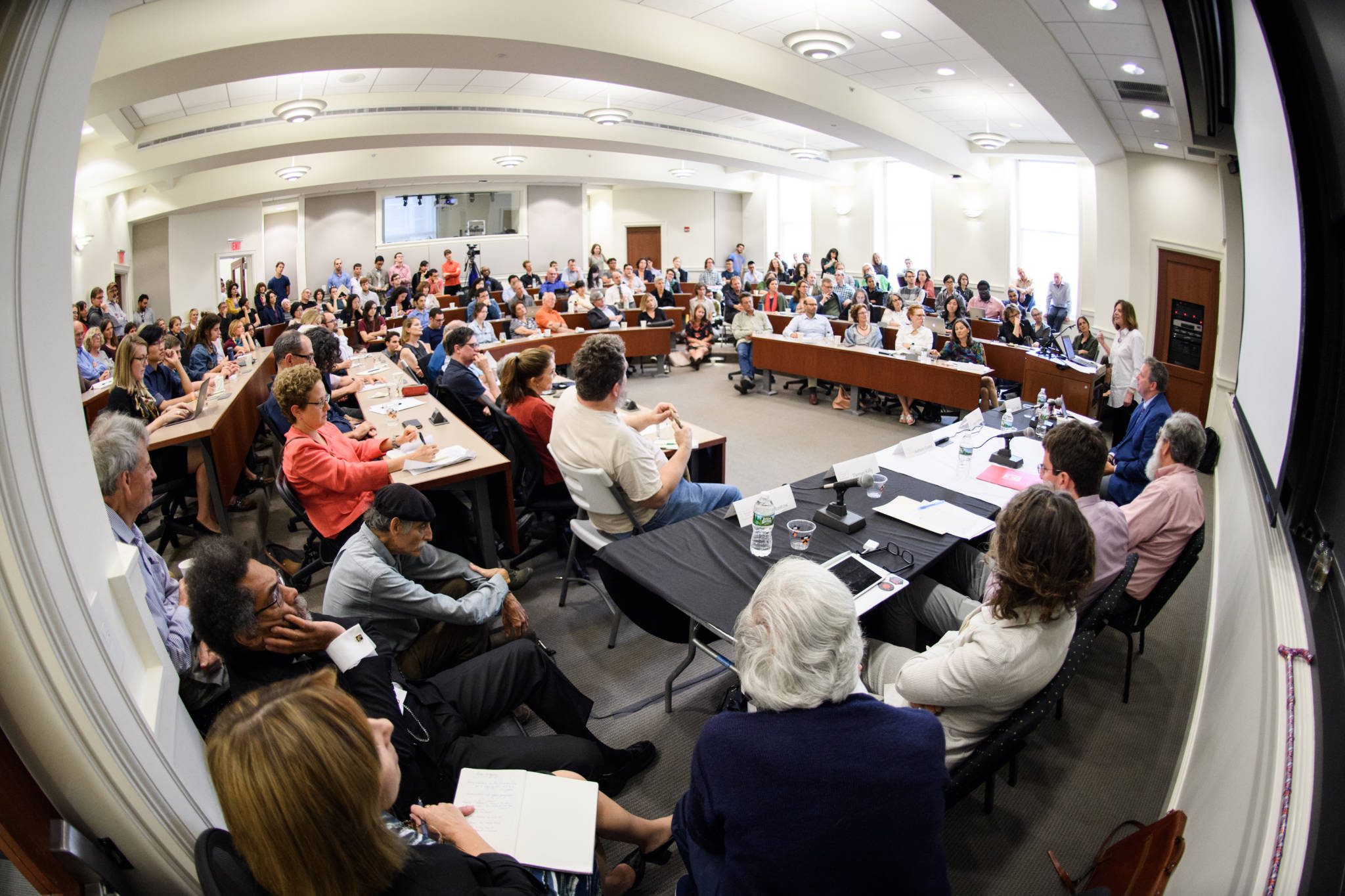At the start of each academic year, the Humanities Council invites the University community to explore how responses to essential and often topical questions impact their teaching and research.
This year, the question, “Is There Progress in the Humanities?” was posed to a full house at 219 Aaron Burr at the Humanities Council’s 11th Annual Colloquium held on September 11. Faculty from across a variety of humanities disciplines held a spirited conversation about progress and its many manifestations.
Historian Jeremy Adelman noted in his keynote speech, Engaged Humanities and Global History, that the question is less whether than how and where there has been progress.
He highlighted the complicated record of the field known as global history. Distinct from world history, which surfaced in the early 20th century to explain the dominance of Western civilization, global history emerged in the late 20th century to spotlight the interdependence of societies.

Jeremy Adelman, Henry Charles Lea Professor of History
Leading historians predicted that global history would return the humanities to public relevance by boosting student enrollment and academic job prospects, as well as produce a sense of cosmopolitan citizenship. Yet although global history has promoted integration and concord, convergence has created new divisions, Adelman remarked.
“In the search for academic cohesion, English became Globish,” he said, referring to the linguistic hierarchy that stratifies access to the global according to one’s fluency in English. Foreign language study, the key to bridging humans, has been declining at American universities since its peak in 2009, Adelman added, calling for greater engagement with the non-West in particular.
Today’s abundant uncertainty in the humanities marks not a catastrophic dearth of progress, but rather growing pains en route to a reframing of narratives, Adelman said.
Professor of Philosophy Thomas Kelly praised his discipline for unsung progress marked by its proposing new questions and providing answers that simply lack recognition as such because resolved problems cease being seen as philosophical.
Identifying another form of progress, he explained that the value of engaging with the timeless questions of the humanities lies in grappling with them as past thinkers did while realizing that we should never feel positioned to move past them once and for all. He applied a quote from 20th-century philosopher Bertrand Russell to the humanities as a whole: ‘“Philosophy is to be studied, not for the sake of any definite answers to its questions, since no definite answers can, as a rule, be known to be true, but rather for the sake of the questions themselves; because these questions enlarge our conception of what is possible, enrich our intellectual imagination and diminish the dogmatic assurance which closes the mind against speculation; but above all because, through the greatness of the universe which philosophy contemplates, the mind is also rendered great, and becomes capable of that union with the universe which constitutes the highest good.’”

Maria DiBattista, Charles Barnwell Straut Class of 1923 Professor of English
English and Comparative Literature Professor Maria DiBattista emphasized the need to reckon with tradition, whether critically or playfully, or both. She discussed a scene from Preston Sturges’s 1941 film The Lady Eve in which a woman stages an encounter with her romantic interest.
“To go forward necessarily involves a going back and recovery of what has been tried in order for the untried to establish itself,” she said. “Perhaps in our haste to be abreast of the times, we are in danger of losing ground.”
She noted that her specialty of film, one of the latest visual arts, by its very existence asks whether and how artistic and technological advances can interact so as to produce progress in the humanities.
Professor of Near Eastern Studies and History Marina Rustow pointed to benefits from the novel burgeoning of collaborations, often facilitated by new technologies.
She explained that in her research, deciphering a fragment requires an enormous range of expertise that no single human could possess. Her working group only recognized an eighth-century Iraqi legal text as a sermon thanks to their conversations with one another and an email from a Frankfurt graduate student.
Similarly, History Professor Anthony Grafton said that he and some colleagues, as a collective, studied the marginalia of the Winthrop family. With help from the Center for Digital Humanities, which the Council supports, they are creating a database containing scans of books with clickable translations and transcriptions that contextualize the notes.
“We realized, in a way that conventional historical research never quite pushed us to do, just how human these people were, just how much reading was embedded in family life, devotional practice, the fabric of their lives and societies. We began to look at the data in a different way,” Grafton said.
He stressed that the collaboration arose without any principal investigator or hierarchy, coaxing all participants out of their comfort zones. Both Grafton and Rustow noted that European colleagues have a stronger history of collaboration than North American ones. They emphasized the value — and the joy – of collaborative research.
By Ruby Shao ’17
















